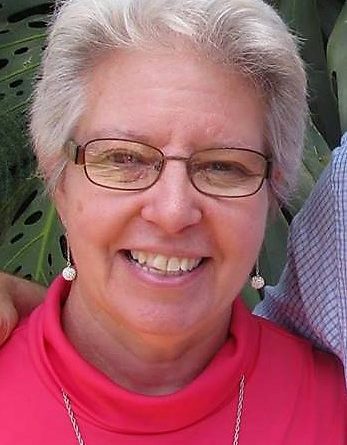The Power of Critical Thinking in Teaching Theology By Cynthia Holder Rich
I received the blessings of a good education, at the public school, university, and graduate levels. I often think of those who taught and formed me, and from whose mentoring I continue to draw as I teach students at Tumaini University Makurima, here in Tanzania. Of the many things that I have learned, critical thinking is among the most valuable, whether the subject matter was music, gender studies, theology, social justice, economic development or ministry.
I have come to value this part of my education even more as I teach and work with students who have not been blessed with this kind of educational background. Most of the students at Tumaini received their education in overcrowded classrooms, with few teaching materials available, in an educational culture convinced that the teacher holds all the wisdom in the room. Our students arrive at University having learned well—and excelled in learning—how to conform to expectations, how to repeat what has been told, and how to not (that is, never, ever) challenge authority. Educators and educational administrators in Tanzania come by this approach to teaching honestly. This is a legacy passed down by colonial and mission leaders, who had no interest in encouraging critical thinking among the colonized. Once this approach was established it became very difficult to uproot.
Additionally, Tanzania is an incredibly beautiful land—and a very poor country, where teaching, like lots of the other activities of life and ministry, is just harder than it is in countries that have more resources. For example, some of the lecture courses here at the University have 700 students in the class. Because books are so expensive and incredibly hard to access, the resources for a course are often comprised of whatever the lecturer puts on the board. It would be great to have smaller classes, greater access to curriculum materials, and for lecturers to interact more with students—and that doesn’t happen because the funds needed to hire more teachers, to access books and other resources, and to develop more interactive teaching strategies aren’t in the budget.
Finally, the teaching of critical thinking skills may bring questions to, and from, those in power. Paulo Freire, whose very important book Pedagogy of the Oppressed was published 50 years ago, was arrested, tortured and exiled by Brazilian authorities for his work empowering poor people through education. Freire spoke against what he called the “banking” model of education—where students enter as empty vessels and teachers deposit knowledge—and spoke for education as freeing people for critical thought and action. Freire taught that education is always “political”, “revolutionary”, and “liberating”. Half a century later, Brazil’s current leaders see Freire’s work as dangerous. Thinking critically carries risk.
Our students are preparing to serve as pastors and leaders for the church. It is an inconvenient and unfortunate truth that the false idea that the person standing in front of the room holds all the wisdom in the room has bled from the classroom into the church. This concept can be found both in Tanzanian and US church life. So we in the church have some unlearning and relearning to do.
For all of us as disciples, thinking critically about one’s culture is a required part of following Jesus. Jesus calls this “loving the Lord your God with your whole mind” (Mark 12:30). It is also one of the most difficult things about discipleship—to commit each day to following, both when it confirms our cultural values and when it conflicts with them. As many pastors and church leaders have learned quite painfully, one’s job security can be put at risk when one preaches about the Gospel’s call to confront and critique one’s own culture. Thinking critically, especially about one’s own context, is hard. It is hard for disciples in the US. It is equally hard for disciples in Tanzania.
We are working with our students toward a more integrated ecclesiology—a more fulsome understanding of church, where the people of God, each and every one, gather, bringing their individual gifts together to build holy community. To approach the church in this way takes open minds and hearts, and an inspired curiosity about what God might have in store for the future. It takes faith in the power of the Spirit to change the present. It takes sacred imagination. It takes critical thinking.
To help students move from educational and ministry goals like conforming and repeating toward goals of thinking and imagining—this is not an easy task. It takes a lot of work, and there are some days when we both wonder if progress is happening. And, by God’s grace, we are regularly granted the opportunity to witness when the change, the integration, and the joy of transformational ideas happens for a student. When that happens, it is wondrous to behold.
As a theological educator, I am so grateful for those on whose shoulders I stand, from whom I have learned so much. Using beloved texts like Maria Harris’ Fashion Me a People, Letty Russell’s Household of Freedom, and yes, Freire’s Pedagogy of the Oppressed—these classics still hold power for me. Books like these and many more were introduced to me by great teachers who believed in and knew the power of critical thinking. I learned to think through reading with and learning from people who knew how to think. In my work here in Tanzania, I seek to share this kind of love of learning—and of critical thinking—that will serve my students well, no matter what the future brings or where the Spirit leads them.
Cynthia Holder Rich serves as a Lecturer in the Faculty of Theology at Tumaini University Makumira, Usa River-Arusha, Tanzania. She founded and directs ecclesio.com.

